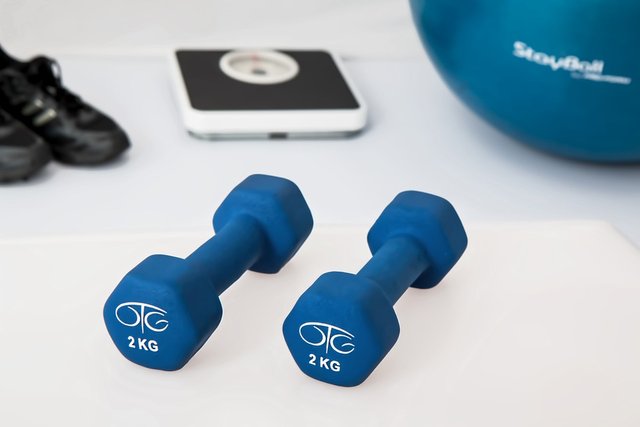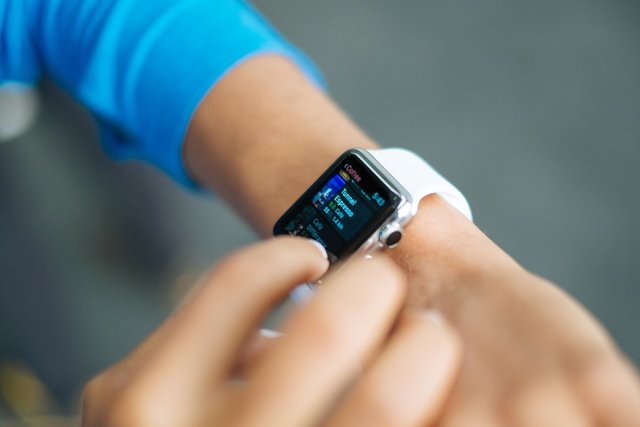Getting in shape in the Future Will Not Be One Size Fits All
Getting in shape in the Future Will Not Be One Size Fits All
Tallying calories. Decreasing feast parcels. Joining a rec center. Eating little dinners and bunches of little tidbits. Dispensing with carbs, or sugar, or both. Beginning a running regimen.
We pledge to embrace new propensities like these, particularly around this season, with an end goal to thin down. In all actuality, the greater part of us require it — 66 percent of grown-ups, or 155 million Americans, are overweight or stout, as indicated by the National Institutes of Health. Around the world, the quantity of individuals considered overweight achieved 1.9 billion of every 2016, as per the World Health Organization.
Thus with an end goal to prevent ourselves from putting on weight, we promise to eat better and exercise more. Once in a while this is, apparently, for our wellbeing — additional weight has been connected to various medical issues, including coronary illness, Type 2 diabetes, expanded danger of disease or stroke, and general expanded mortality. For others, an eating routine may very well be an approach to look great. Regardless, weight reduction has turned into a $66 billion industry in the United States alone.
In any case, a large portion of us, regrettably and dissatisfaction, neglect to keep the pounds off. While 45 million Americans stop eating so much junk food every year, look into has demonstrated that 80 percent of individuals who do figure out how to get thinner recapture it — for the most part at a rate of around 2 to 4 pounds for each year.
Luckily, researchers are working on this issue. In the course of the most recent couple of decades, specialists have attempted to answer crucial inquiries regarding human science to comprehend why it's troublesome for individuals to shed pounds, and why a few people put on the weight back notwithstanding when they're perseveringly adhering to their eating routine and exercise program.
A year ago, the NIH devoted $931 million to weight reduction investigate, which has effectively enhanced our comprehension of the different features that impact singular results. Because of this examination, researchers have picked up a touch of additional astuteness First, it's not generally your blame on the off chance that you can't get more fit. Second, in spite of some tech-overwhelming, and fairly obtrusive, weight reduction arrangements, nothing can very supplant eating routine and exercise.
From a developmental point of view, fat isn't such an awful thing. It helps keep us warm, ensures our interior organs, and stores unused vitality from the nourishment we eat for possible later use that our body can drawn upon later.
In 2018, however, a considerable lot of us approach adequate sustenance sources that give us vitality. What's more, we don't have to scrounge or chase a large portion of the day to get it. The outcome is a pandemic of corpulence remarkable ever.
A large portion of us comprehend the essential thought behind putting on and getting thinner. On the off chance that we reliably eat a bigger number of calories than we utilize, we put on weight. Eat less, and we lose it. Be that as it may, what's really occurring inside our bodies when we put on weight is more mind boggling than it might appear. Truly, fat tissue — the specialized name for fat — stores vitality and gives protection. Be that as it may, it likewise stores various different things we may ingest (deliberately or something else) as we approach living: everything from vitamins to ecological poisons. Fat additionally assumes a key part in managing hormones in the body, for example, estrogen and insulin.
We're conceived with pretty much a similar number of fat cells that we will have forever. So when we put on or get more fit, it's the measure of the cells that progressions relying upon how much abundance vitality from the sustenance we eat they have to oblige.
Most as of late, analysts discovered that fat cells are not all made equivalent. While the fat cells ("white fat") we more often than not consider as working up around our hips and guts are great at putting away vitality, alleged dark colored fat cells are vastly improved at keeping us warm. It's for quite some time been known to be available in plump infants and is critical to their survival (as they aren't yet sufficiently solid to yank the covers up in the event that they get icy in the night). At that point, in 2009, scientists at the National Institute of Diabetes and Digestive and Kidney Diseases found that grown-ups additionally have dark colored fat. What's more, that it's a decent fat to have.
One of the popular expressions identified with weight reduction is digestion, which alludes to the rate at which our body "consumes" the vitality we get from the nourishment we eat, and which our body will store in fat cells if it's not utilized. A man's metabolic rate is affected by various elements, for example, age, sex, weight, and action level. All things considered, one's metabolic rate isn't really the same for the duration of their life.
This stated, there's nothing characteristically awful about fat — indeed, we can't get by without it. Yet, we likewise can't get by with a lot of it. The same is valid for different animals, however their bodies work a bit uniquely in contrast to our own. Mice, as indicated by one investigation, have an "interior scale" that controls hunger signs when they get substantial. People have no such sense, in any event, not that we are aware of. Different creatures, similar to wenches, modify their whole body estimate — organs and skeleton and all — as their weight vacillates in light of regular changes.
Until the point that we as an animal categories get ourselves ready to roll out improvements like these, we'll need to discover different approaches to hack our bodies to hold our weight in line But given the idiosyncrasies of our science that keep the weight on, this may be less demanding said than done.
Maditation
The proven method to get more fit — great old eating routine and exercise — is, as a great many people can let you know, very little fun. It's hard to stay with, and advance is moderate. So specialists have thought of various Maditation that can accelerate the procedure, or create similar outcomes with less exertion.
A few methods seize the body's regular components to motivate it to get more fit. Individuals who are overweight may accuse a moderate digestion, the rate at which the body utilizes the vitality from sustenance. However, it's extremely our muscles that consume those calories. Imagine a scenario where they could do as such more effectively. Scientists found that, when infused with a compound called morpholino, mice's muscles consumed more vitality without working harder, as indicated by a recent report.
Different techniques discover approaches to adjust our relationship to hunger: either biochemically, by ending those signs from the cerebrum, or tending to the all the more inwardly charged understanding of our distress related with hunger. Specialists have discovered that individuals regularly abandon consumes less calories since that they battle to calm the sentiment hunger. Be that as it may, hunger, we're understanding, isn't only a natural flag that our bodies require supplements — people eat for passionate reasons and for social reasons. The greater part of this makes it harder to get in shape.
Maybe medications could control our yearning. The previous fall, a California-based pharma organization called Amgen made an infusion planned to do only that. The medication contains a protein called GDF5, supported with antibodies so the body wouldn't separate it too rapidly to possibly be viable. In tests, specialists found that monkeys that got the infusion ate less, shed pounds, and were more averse to create Type 2 diabetes. The medication had not yet been tried in people, in any case, who could encounter symptoms that may make the medication unappealing (on the off chance that it works by any stretch of the imagination).
Amgen's putting forth is the latest in a long queue of medications created over the previous decade. To date, the others didn't confront the examination of clinical trials. Axokine was one such medication; it fizzled its first clinical trial when 66% of the patients created antibodies to it, which means it quit working. Another, called Rimonabant, made it to showcase in Europe just to be immediately pulled from the racks when patients started encountering major mental symptoms, for example, sadness and state of mind transforms (it was never endorsed in the U.S.).
Different techniques have demonstrated successful, however with a huge admonition: They are considerably more obtrusive. Gastric sidestep, which surgically diminishes the extent of the stomach or abbreviates the intestinal tract, has been around for over thirty years. While it's regularly effective, it's as yet a noteworthy surgery and accompanies dangers, for example, disease or blood clusters.
So analysts have looked to make gadgets that are as successful as a sidestep yet are less obtrusive and accompanied less hazard. In 2015, the FDA endorsed the principal "hostile to stoutness" electronic embed, which pieces motions along the vagus nerve — the way our stomachs tell our brains we're ravenous.
Another gadget, called AspireAssist — basically enabled patients to exhaust some of their stomach substance after a dinner. The FDA affirmed the gadget in 2016, yet it was met with discussion. The most far reaching feedback was that such a gadget was pretty much doctor affirmed bulimia. Its makers elucidated that the gadget was outfitted with a security system that kept it from being utilized more than three times each day for a six-week duration.
One of the greatest difficulties is, in truth, confronting the passionate difficulties weight reduction presents. It is a voyage laden with disappointment, experimentation, little victories, and sentiments of fantastic disappointment. The weight reduction industry tends to tempt people who are searching for snappy and simple fixes. In extremes, the eating regimen and exercise regimens they tout frequently do prompt weight reduction — regularly quickly. While that may, at to begin with, be fortification to keep somebody roused, what nutritionists know, and pharmaceutical officials maybe couldn't care less to recognized, is that keeping weight off requires more than dropping one sort of nourishment. It requires a way of life change, regularly one that individuals are hesitant to make regardless of whether they know it would enhance their wellbeing.
"On the off chance that there would be something — the following awesome development — [it would be something] that would keep individuals extremely connected with," Becca Krukowski, a partner teacher of preventive solution at the University of Tennessee Health Science Center, told Futurism. "What I see so far is that there's some kind of individual part, that nonspecific something, that keeps individuals going."................
Information — on individuals' action, on what they eat — might do only that. Wearables like Fitbits or applications like Apple Health are as yet not accessible to everybody, but rather they are progressively pervasive. But since this information is regularly followed latently, it doesn't generally draw in individuals (and create the outcomes they ache for) as some may trust.
Individuals appear to require passionate help to the exclusion of everything else. Krukowski noticed that, notwithstanding when individuals track their information, what they truly need is to have others to converse with about it. The web, at that point, may be outstanding amongst other weight reduction instruments out there, if it's utilized to associate individuals, enable them to get to data, and assemble systems of help.
The Future of Weight Loss Comes In All Sizes
In a time in which everything is customized and adaptable, in which we appear on the cusp of changing treatment to coordinate a man's individual genome, it appears to be impossible that the general population without bounds will get more fit with a one-estimate fits-all approach. There's nobody consume less calories, one exercise program, one gadget, or one surgery that will work for everybody. Regularly, the individuals who succeed long haul have attempted numerous procedures and techniques, and the one that in the end causes them keep the weight off might change after some time.
It appears to be much more probable that a more individualized approach will be really transformative for those trying to shed pounds.
For the time being, it appears to be, nothing can beat eating regimen and exercise as far as viability and wellbeing. Be that as it may, innovation could diversion ify the way toward getting more fit, make it all the more engaging and less like drudgery. "Regarding innovation, the enormous thing that I would love to see is approaches to make it more fun," Krukowski said. "I have an inclination that in the event that we could get, by one means or another, either through the procedure in these projects or enable individuals to perceive the progressions they would appreciate in themselves, this would be a less demanding, more fun, more reasonable process."
Guiding individuals' thoughtfulness regarding the progressions they're making in their lives could enable them to remain propelled and locked in. Be that as it may, it could have an upbeat symptom, for which we as a whole have a restored hunger: satisfaction.




This is a great post! All of these points are so important!
yes these points are important if we implement them in our life..